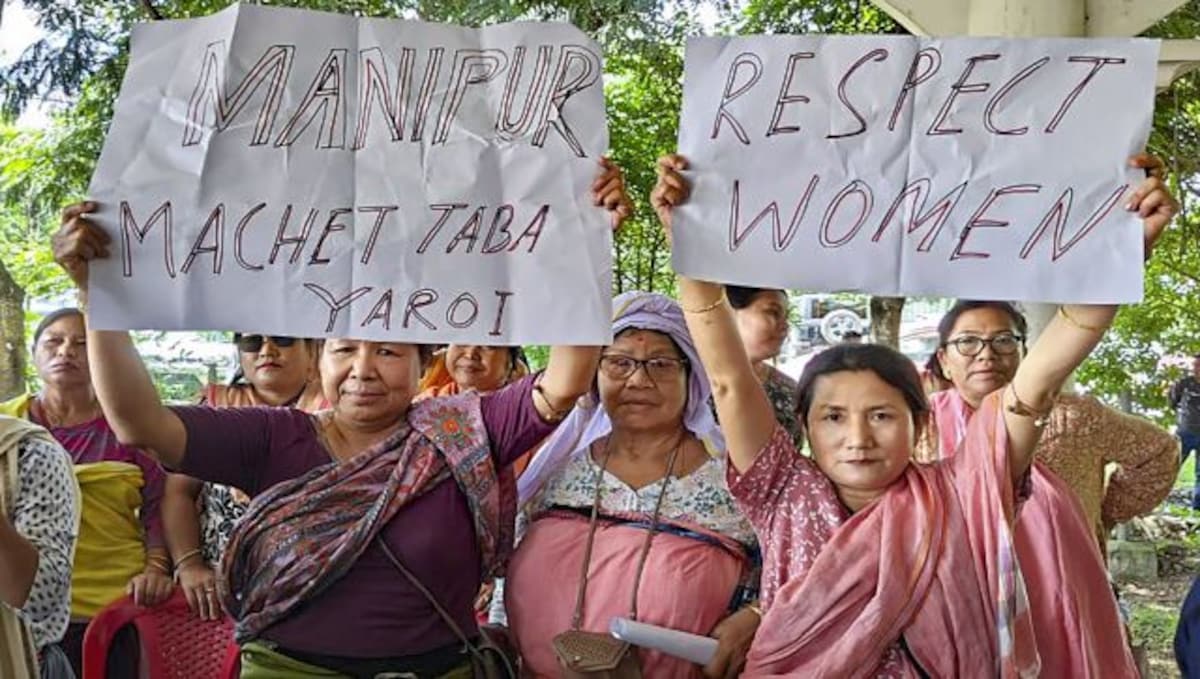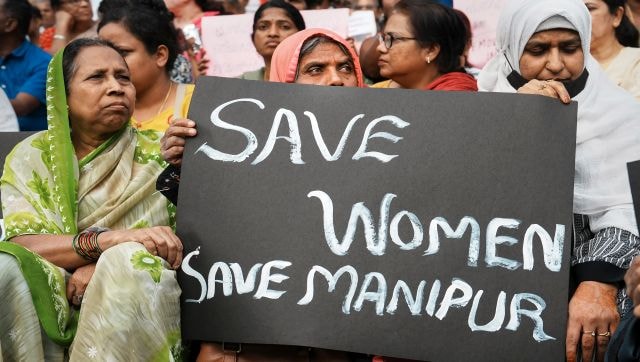CBI Empowered to Investigate All 12 Cases of Crimes Against Women in Violence-Stricken Manipur

CBI Empowered to Investigate All 12 Cases of Crimes Against Women in Violence-Stricken Manipur
In a significant move towards ensuring justice and safety for women in Manipur, the Central Bureau of Investigation (CBI) has been granted the authority to probe all twelve cases of crimes against women in the violence-affected state. This landmark decision comes as a response to the escalating concerns over the safety of women in Manipur, which has witnessed a distressing surge in gender-based violence incidents.
The power bestowed upon the CBI to delve into these cases is indicative of the government’s firm commitment to addressing the deeply rooted issues plaguing the state. With this development, a renewed sense of hope and reassurance has dawned upon the lives of many women who have suffered silently, their voices stifled by fear and societal pressures.

The multifaceted challenges faced by women in Manipur are both complex and pervasive. From domestic violence and sexual assault to human trafficking and harassment, the spectrum of crimes against women is alarmingly broad. These issues have festered over time due to a confluence of factors including cultural norms, inadequate legal mechanisms, and a lack of awareness and education. The situation has further deteriorated in the backdrop of the state’s history of conflict and insurgency.
This bold step by the government signifies the recognition of these concerns and a determination to tackle them head-on. By entrusting the CBI with these cases, the authorities are sending a clear message that impunity will no longer be tolerated, and the wheels of justice will turn tirelessly to restore the dignity and security of women.
The decision is expected to have a profound ripple effect on the society of Manipur. It is likely to embolden survivors to come forward and share their experiences, knowing that their grievances will be dealt with impartially and rigorously. Moreover, it serves as a deterrent to potential perpetrators, as the fear of stringent punishment looms larger with the CBI’s involvement.
The process of investigation and subsequent legal proceedings will undoubtedly be a litmus test for the efficacy of this measure. The CBI, armed with its resources and expertise, must navigate through the intricate labyrinth of evidence and testimonies. It is essential for the agency to demonstrate unwavering commitment and transparency throughout this journey, instilling faith in both the survivors and the public at large.

As the cases progress, it is imperative for various stakeholders to collaborate closely. This includes not only the law enforcement agencies and judiciary but also civil society organizations, women’s rights advocates, and the media. Their collective efforts will not only amplify the voices of survivors but also ensure that the wheels of justice turn smoothly without any hindrances.
In parallel with the investigative process, there is an urgent need for systemic reforms. The government should consider revisiting and revising existing laws to address the evolving nature of gender-based violence. Comprehensive awareness campaigns should be launched to educate both women and men about their rights and responsibilities. Additionally, setting up support mechanisms such as helplines, safe houses, and counseling services is crucial to provide survivors with the assistance they need to rebuild their lives.
It is also important to acknowledge that justice goes beyond convictions. Rehabilitation and reintegration of survivors into society must be a holistic process that includes medical, psychological, and economic support. By focusing on healing and empowerment, the authorities can contribute to breaking the cycle of violence and fostering a safer environment for women in Manipur.
The decision to entrust the Central Bureau of Investigation (CBI) with the responsibility of investigating these cases also sends a powerful message of accountability and fairness. The CBI’s reputation as an independent and competent investigative agency brings hope to the survivors and their families, who have often grappled with the feeling of helplessness and frustration. This move is a testament to the government’s acknowledgment of its duty to protect the rights of its citizens, irrespective of their gender.

The cases of crimes against women in Manipur are not isolated incidents but rather symptoms of a deeply entrenched societal issue. The state’s history of conflict and turmoil has, in some cases, exacerbated the problem, leading to an environment where impunity thrives. Addressing this issue requires not only rigorous investigation and prosecution but also a broader effort to transform the attitudes and perceptions that perpetuate violence against women. This comprehensive approach is pivotal in ensuring a sustainable change that benefits not only the current generation but also future ones.
As the CBI takes on the mantle of investigating these cases, it is crucial for the agency to maintain transparency and regular updates. Providing information on the progress of the investigations can help dispel any doubts or suspicions that might arise. This practice of open communication can foster trust between the investigating agency and the public, further strengthening the credibility of the process. Moreover, involving civil society organizations and women’s rights activists in monitoring the investigations can contribute to a robust and accountable mechanism.
In this endeavor, it’s important to remember that justice is not achieved solely in courtrooms. While legal proceedings play a pivotal role, true transformation comes from altering societal norms and attitudes. Education and awareness campaigns that challenge traditional gender roles and stereotypes are essential to fostering a culture of respect and equality.
By addressing the root causes of violence against women, the authorities can aim for a future where such crimes are not just punished but prevented altogether.




